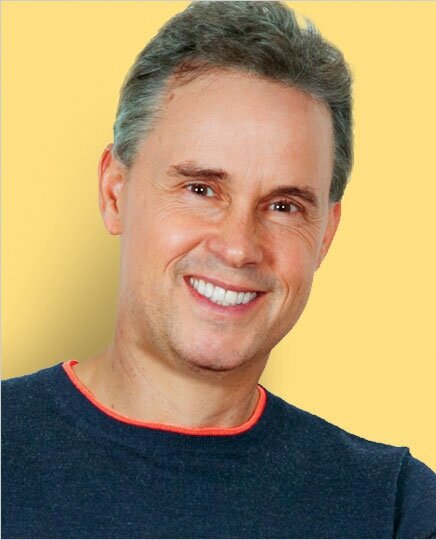
What Is Positive Psychology - Sandip Roy
Positive psychology focuses on positive states, positive traits, and positive institutions:
Positive states mean feeling great, feeling grateful, feeling proud, feeling alive.
Positive traits mean character, and also things like talents and interests that we consider to be positive characters, along with grit, self-control, kindness, sense of humor.
Positive institutions indicate our schools, our religious places, our sports teams, our cultural traditions, the things that really support us in feeling good and being good.


Understanding the Links Between Personality and Happiness - Luke D Smillie Ph.D.
Extraversion predicts higher well-being whereas neuroticism predicts lower wellbeing. Moreover, these traits predict future wellbeing assessed 10 years later, suggesting that personality has a sustained impact on happiness over time.

Three Pillars of Permanent Happiness - Mark Travers Ph.D.
Pillar #1: Be autonomous.
Pillar #2: Tune into your “sense of mattering.”
Pillar #3: When it comes to happiness, age is on your side.

This is the secret to happiness, according to Harvard scientists - Dr. Eric S. Kim
Everybody wants to know the secret to happiness.
The answer? Volunteering to help others.


THE HAPPINESS PROJECT - Robert Holden, Ph.D.
“Happiness is a spiritual path. The more you learn about true happiness, the more you discover the truth of who you are, what is important, and what your life is for.

The 10 Vital Happiness Rules - Atalanta Beaumont
The most important thing to realize about being happy is that it is “how” not “what.” Things will not make you happy. Affluenza—coined as the dogged pursuit of “more”—is particularly prevalent in Western societies and will often be pursued at the risk of “overload, debt, and anxiety.” An awareness of this behavior can stop us from falling into its clutches—more does not make people happy.

Scientists think about 40% of happiness is genetic - Vanessa Caceres
Happiness is only partially determined by your genes, and the rest comes down to environment.
The hallmarks of happiness are feeling satisfied, enjoying daily activities, and feeling purposeful.
To increase your happiness, try volunteering, exercising, and getting out in nature.

Stop Preaching Happiness, Gratitude, and Positive Affirmations - Michelle P. Maidenberg Ph.D., MPH, LCSW-R, CGP
Our negativity bias and challenge with staying in the present moment compels many of us to regret, fear, worry, and spiral into thinking and feeling negatively.
It leaves in its path individuals who feel as if there is something fundamentally wrong with them. Those who become sad, frustrated, and disappointed because they cannot rid themselves of thoughts and feelings that they perceive as getting in their way, no matter how hard they try.

Positive Psychology Takes a New Look at Happiness
PP2.0 rests on the four pillars of virtue, meaning, resilience, and well-being rather than on the single criterion of happiness. You may not be “happy” right now, but you can still feel your life has meaning and that you have the inner strength to cope with the challenges that come your way.

Don’t Wish for Happiness. Work for It. - Arthur C. Brooks
In his 1851 work American Notebooks, Nathaniel Hawthorne wrote, “Happiness in this world, when it comes, comes incidentally. Make it the object of pursuit, and it leads us a wild-goose chase, and is never attained.” This is basically a restatement of the Stoic philosophers’ “paradox of happiness”: To attain happiness, we must not try to attain it.

How to Be Happy: A Surprising Lesson on Happiness From an African Tribe - James Clear
“Africans have a thing called ubuntu. We believe that a person is a person through other persons. That my humanity is caught up, bound up, inextricably, with yours. When I dehumanize you, I dehumanize myself. The solitary human being is a contradiction in terms. Therefore you seek to work for the common good because your humanity comes into its own in community, in belonging.”

The Happiness Quiz: How Happy are You?
HAPPINESS IS UNDERSTANDABLE, OBTAINABLE, AND TEACHABLE
This Happiness Quiz measures your “happiness skills” or habits.

The Happiness Ruse - Cody Delistraty
This imperative to avoid being – even appearing – unhappy has led to a culture that rewards a performative happiness, in which people curate public-facing lives, via Instagram and its kin, composed of a string of ‘peak experiences’ – and nothing else. Sadness and disappointment are rejected, even neutral or mundane life experiences get airbrushed out of the frame. It’s as though appearing unhappy implies some kind of Protestant moral fault: as if you didn’t work hard enough or believe sufficiently in yourself.


Focusing on this will make you miserable according to psychologists - Sarah Dillon
What happens to our psyche when we fall short? Everybody wants to be happy, of course, it is in our nature but when we put so much pressure on the means to achieve that goal the ends are often met with disappointment. If we are expected to be happy every single moment of every single day those unrealistic expectations can significantly bum you out.

Excelling at the School of Happiness - Robert Puff Ph.D.
Each individual is responsible for determining whether their own life is going well.
A happy life looks different depending on the person, often involving a combination of self-improvement, helping others, and seeking happiness.
People tend to be happier when they let go of unrealistic expectations about how life should be and focus on the things they can control.

Choosing Happiness - Kristen Fuller, M.D.
How many times have you told yourself, “I just want to be happy?”
There is a plethora of research about the science of happiness, and results conclude that each one of us can work towards the goal of happiness. But what does it exactly mean to “be happy?”
Is happiness a fleeting emotion or a state of mind?

